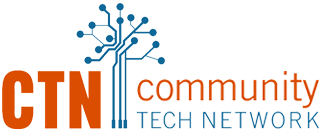As a follow-up to our recent post about the digital divide in the state of California, this month we’re highlighting some facts and figures about the issue in another major U.S. state: Texas.*
Fast Facts
- According to the Texas Broadband Development Office (PDF), 7.7 million Texans across 3 million households lack broadband.
- Texas has some of the lowest rates of connectivity in the U.S., ranking 46th out of 50 states.
Geography and the Digital Divide
- Texas is largely rural, as 1 in 5 Texans live in rural areas. Ensuring broadband coverage in many of these non-urban sectors has proved difficult. In fact, 85% of Texans who lack high-speed internet live in rural communities.
- Because of the rural nature of Texas, 74 counties across the state do not have a single hospital. These areas would greatly benefit from telehealth, but the majority lack the adequate infrastructure for broadband.
- However, the digital divide in Texas does not only affect rural communities. Laredo and Brownsville are two major Texan cities that constantly rank among the lowest rates of broadband across the country. About one-third of residents (PDF) in these cities lack internet access.
- Deep East Texas has some of the worst levels of connectivity. The average speed of home internet across Texas is 118 megabits per second, but nearly half of the households in the Deep East have speeds of only 10 Mbps or less. The area has been called one of the “most underserved regions in the nation when it comes to broadband.”
Impact on Education
- About one-third of school-age children (PDF) in Texas lack either high-speed home internet or a computer. This can make completing homework assignments nearly impossible.
Race and Income
- As is typically the case in most states, the digital divide in Texas disproportionately affects low-income households and communities of color.
- About 50% of Texans who make under $20,000 lack home internet. In comparison, the majority of Texans (82%) who make over $75,000 are in fact connected.
- Sixty-six percent of students who lack adequate access to the internet are Black, Latinx, or Native American. Notably, the gaps between Latinx students and their white counterparts are larger in Texas than the rest of the U.S. For example, 21% of Hispanic students in Texas lack computers, compared to just 8% of their white counterparts.
Overall, there is still much work to be done to ensure that all Texans have access to the critical resources they need to thrive in the digital age.
*Community Tech Network works across the entire nation, but our primary offices are located in San Francisco, California, and Austin, Texas.


Comments are closed.